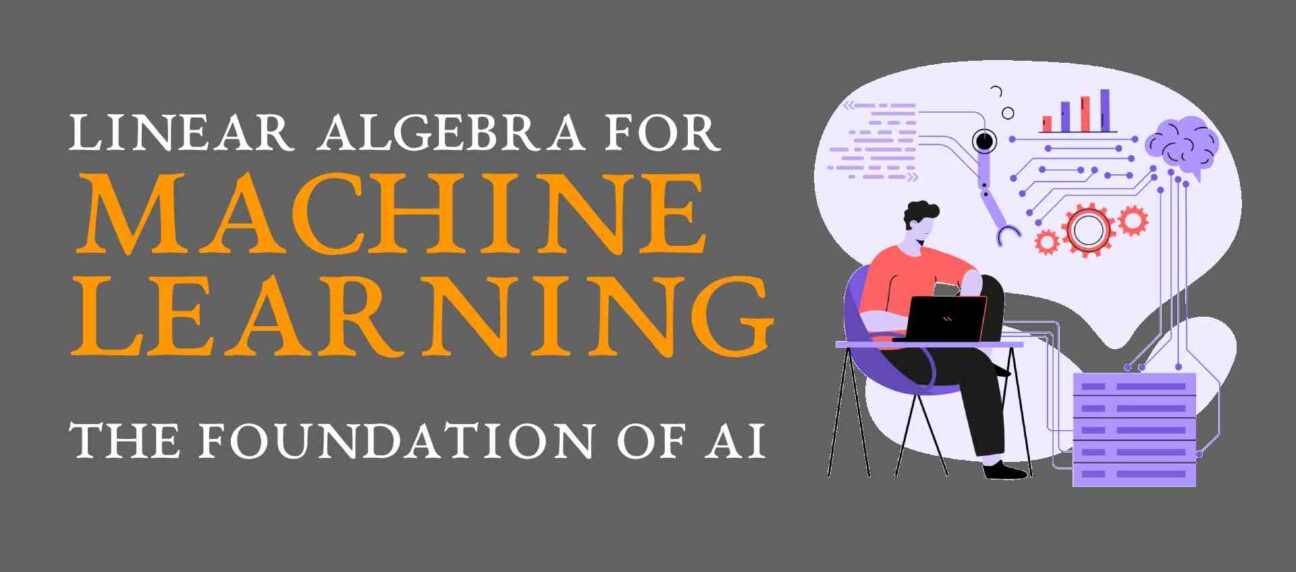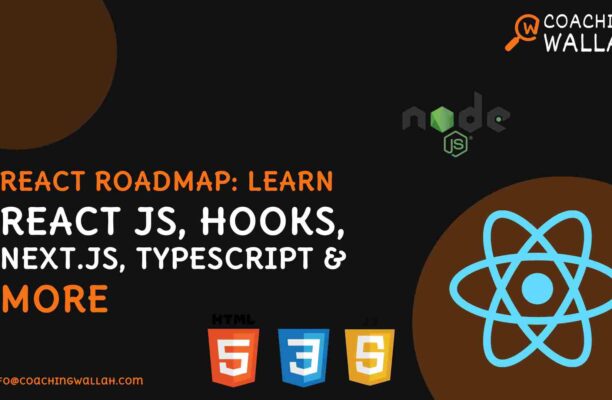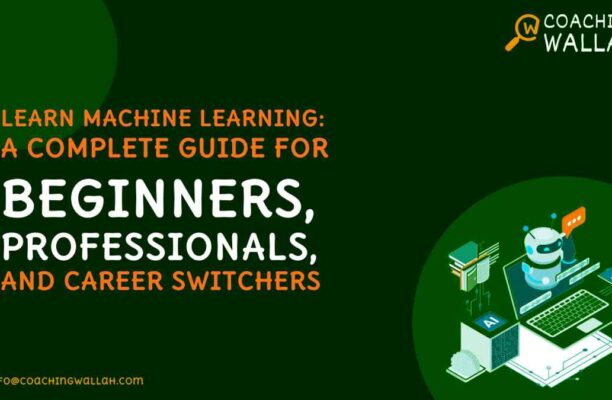Linear algebra is a cornerstone of machine learning and artificial intelligence. From powering algorithms to optimising models, it plays a crucial role in enabling machines to learn, adapt, and perform complex tasks. Whether you’re working with datasets, designing neural networks, or implementing algorithms, understanding linear algebra is essential for success in machine learning.
In this blog, we’ll explore the key concepts of linear algebra that are fundamental to machinelearning and discuss their practical applications.
Why is Linear Algebra Important for Machine Learning?
Linear algebra provides the mathematical framework for:
- Representing Data: Data in machine learning is often represented as vectors and matrices.
- Performing Transformations: Algorithms use linear transformations to modify or process data.
- Optimisation: Gradient-based methods rely on linear algebra for efficient computation.
- Model Representation: Concepts like weights, features, and outputs are represented using matrices and vectors.
Key Linear Algebra Concepts for Machine Learning
1. Scalars, Vectors, and Matrices
- Scalars: Single numerical values (e.g., a learning rate in gradient descent).
- Vectors: Ordered sets of numbers, often representing data points or features.
- Example: v=[1,2,3]
- Matrices: Two-dimensional arrays of numbers, representing datasets or model weights.
- Example:

2. Matrix Operations
- Addition and Subtraction: Combine matrices element-wise.
- Matrix Multiplication: Key to neural network computations.
- Example = C=A⋅B
Transpose: Flipping rows and columns.
- Example: AT
Determinants and Inverses
- Determinants help in understanding matrix properties (e.g., invertibility).
- Inverses are used to solve linear equations: x=A−1b
4. Eigenvalues and Eigenvectors
- Crucial for dimensionality reduction techniques like PCA (Principal Component Analysis).
- Eigenvectors point to directions of maximum variance in data.
5. Norms
- Measure the magnitude of vectors.
- Example: Euclidean norm (∥𝑣∥2∥v∥2):

Applications of Linear Algebra in Machine Learning
1. Data Representation
Datasets are often represented as matrices where rows are data samples, and columns are features. Operations on these matrices enable data manipulation and preprocessing.
2. Dimensionality Reduction
Techniques like PCA use eigenvalues and eigenvectors to reduce the dimensions of datasets while preserving variance, making computations more efficient.
3. Neural Networks
- Weight matrices connect neurons in layers.
- Forward propagation and backpropagation rely heavily on matrix multiplication and transposition.
4. Optimisation
Gradient descent, the backbone of many machine learning algorithms, uses vector and matrix operations to update model parameters.
5. Support Vector Machines (SVMs)
Linear algebra is used to find the hyperplane that best separates classes in a dataset.
Tools for Practising Linear Algebra in Machine Learning
1. Python Libraries
- NumPy: For matrix operations and linear algebra computations.
- SciPy: Advanced linear algebra functionalities.
- TensorFlow/PyTorch: For matrix computations in deep learning.
2. Visualisation Tools
- Matplotlib: Visualise vectors, matrices, and transformations.
- GeoGebra: Explore linear transformations interactively.
How to Learn Linear Algebra for Machine Learning
- Start with the Basics: Understand scalars, vectors, matrices, and their operations.
- Practice Coding: Use Python libraries like NumPy to implement linear algebra operations.
- Apply Concepts: Solve problems in machine learning, such as implementing PCA or neural network computations.
- Visualise Transformations: Use tools to visualise how data changes through linear transformations.
- Study Applications: Focus on how linear algebra is used in popular algorithms.
Linear algebra is the language of machine learning. By mastering its concepts, you can build a strong foundation for understanding algorithms, optimising models, and solving complex problems. Start your journey with small steps, practise regularly, and explore real-world applications to solidify your understanding.
At Coaching Wallah, we provide in-depth tutorials and resources to help you learn linear algebra and its role in machine learning. Take the first step today and unlock the power of mathematical intuition in AI!




Leave your comment